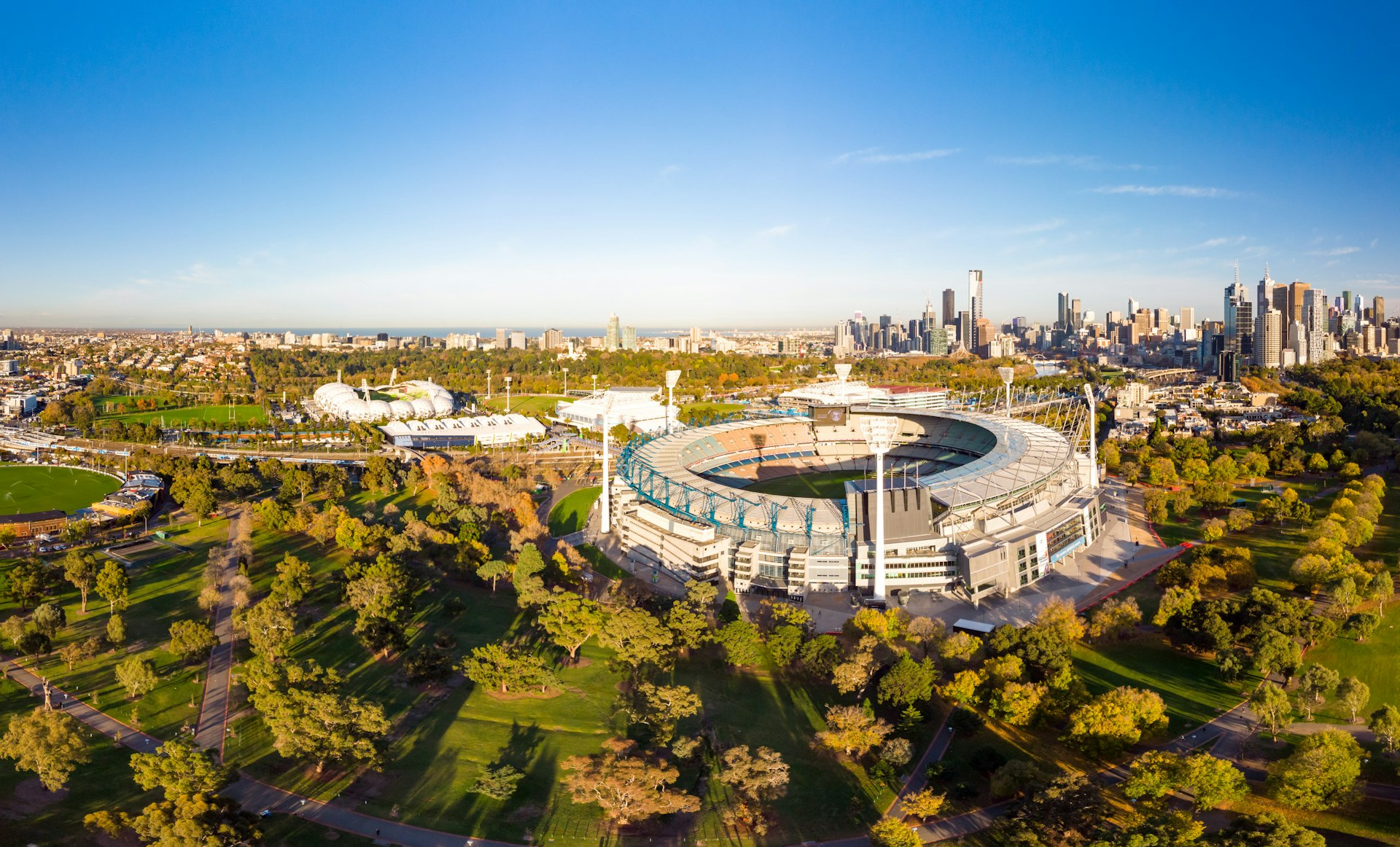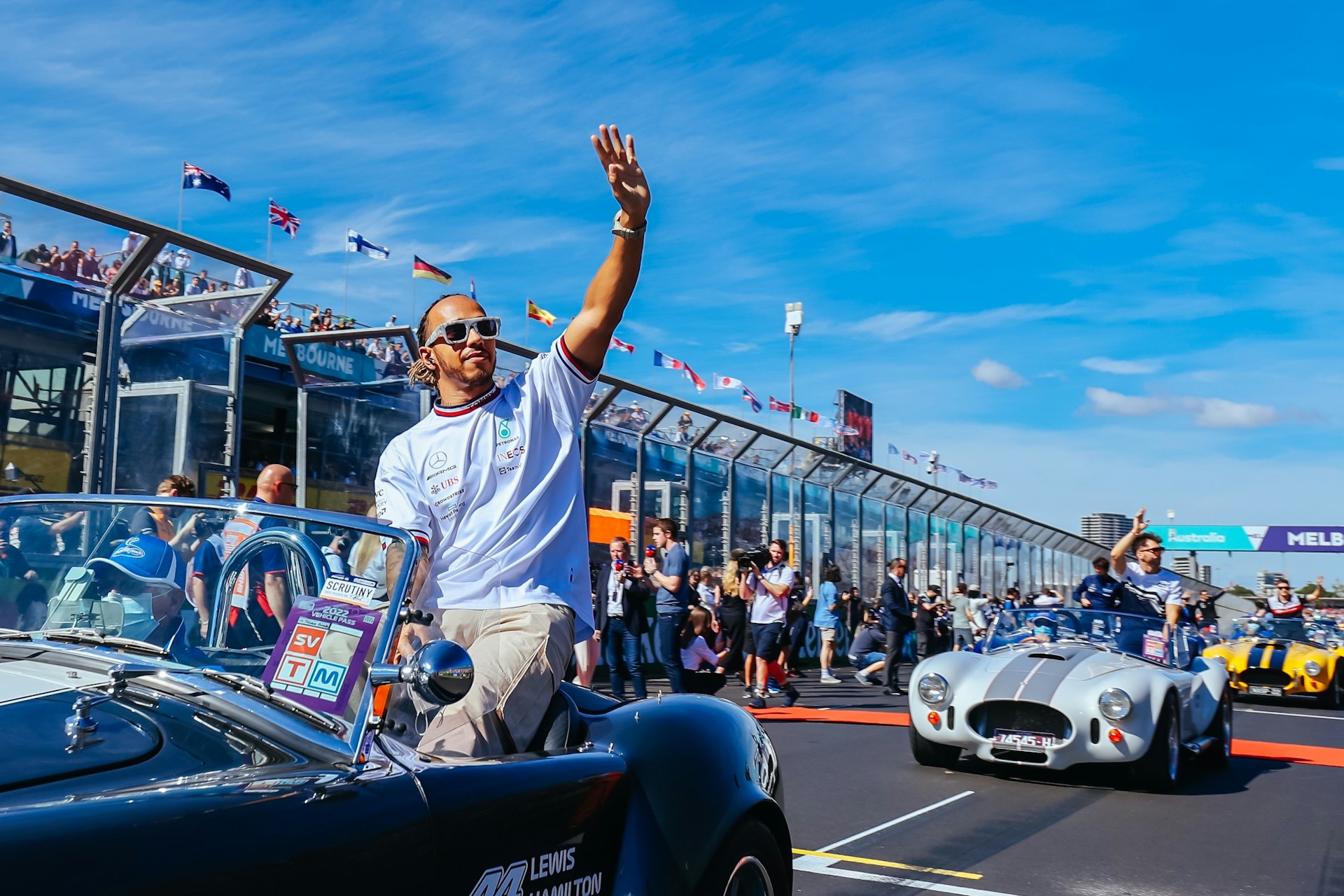Though its visitor numbers ebb and flow, Melbourne is a great city to visit any time of year.
With cooler weather than more northerly Australian favorites such as Sydney and Brisbane, this cosmopolitan city is renowned for its indoor cultural attractions – including dining, bars, theater, live music and shopping – which can be enjoyed at any temperature. The same “anytime” rule applies to Melbourne’s role as the nation’s sporting capital – cricket and tennis are the key summer drawcards, and Australian Rules football (also known as AFL) has a huge following in winter.
If weather is a key factor in deciding when to visit, consider coming to Melbourne in the early autumn (March to April), when days are often sunny but not too hot. Any earlier and you’ll be hitting the hottest and busiest time of the year; Australia’s school holidays run from December to January, resulting in peak prices.
To minimize contact with the traveling crowds, drop by in the chilly winter months (June to August). Melburnians will still be out and about in numbers – nothing stops them from enjoying their city in any season – but tourists are less present. The spring months (September to November) are warmer but have the most unpredictable weather and the most rain.
January to February is the best time for hot, sunny weather
Melbourne’s summer technically starts in December, but that month often feels like an outlier of spring with some cold days and unpredictable rainfalls. This phenomenon is well known to the traditional custodians of Melbourne, the Wurundjeri people of the Kulin nation. They call the December season Garrawang, separating it from the hot, dry season of Biderap in January and February.
These first two months of the year are the best time to hit the beach, perhaps at the bayside suburb of St Kilda (take trams 16 or 96) or at the west-side haven of Williamstown (catch a train to Williamstown Beach railway station). Longer, warm summer nights are also perfect for enjoying the grand slam Australian Open tennis tournament, which takes place in the impressive Melbourne Sports and Entertainment Precinct, next to the city center.
When the sun gets too hot – the temperature can exceed 30°C (86°F) in summer – head to Melbourne’s plentiful parks and gardens with their lush green spaces and large trees providing welcome shade. Top of the list is the Royal Botanic Gardens, an oasis of greenery and lakes.
Another highlight of summer is the Lunar New Year celebrations in Chinatown (one of the world’s oldest such neighborhoods) with costumed dragons roaming the city streets. Melbourne’s annual LGBTIQ+ pride festival, Midsumma, also stages events across the city from January to February. And for live music, book a ticket to the one-day Laneway Festival in Flemington, which features multiple popular artists from Australia and overseas.
March to April is the best time to enjoy festivals and the great outdoors
The third month of the year has earned the nickname “Mad March” due to the vast number of major events crammed into it – so many they often spill over into April.
The Australian Formula One Grand Prix at Albert Park Lake appeals to “rev-heads” (as Aussies call motorsports enthusiasts), and one of the world’s largest live comedy events, the Melbourne International Comedy Festival, starts later in the month. Taking over multiple venues throughout the city (including the grand Melbourne Town Hall), it fills the city with late-night energy and laughter for over three weeks.
The Melbourne Food and Wine Festival is also a March marvel, featuring special dining events such as the World’s Longest Lunch, which in 2023 saw 1,800 people enjoying a midday meal at a very long table in Treasury Gardens.
With the best weather of the year (not too hot or cold and with minimal rainfall), this period is also perfect for outdoor pursuits such as hiking and cycling. For a fun day trip, catch a suburban train to Lilydale, then walk or bike along the Warburton Rail Trail, which follows the route of a former railway past native trees and small towns.
June to September is the best time to soak up culture
June is when winter properly kicks in after a dip in temperatures in May, and the cold weather endures until September. Average daily temperatures over these months range from a minimum of 7°C (45°F) to a maximum of 15°C (59°F). Days are short and overcast skies are the norm, but this is one of the driest times of year.
Thankfully, this period is a great time for cozy, indoor cultural events – the queen of which is the series of Winter Masterpieces staged by the art museum NGV International and the Australian Centre for the Moving Image (ACMI). These are world-class exhibitions that attract big crowds. In previous years the NGV’s featured artists have included Picasso, Degas and Monet, while the ACMI has focused on showcasing creators such as Disney, Aardman Animations and David Bowie.
RISING, held in June, is the city’s main arts, music and food festival. It presents several innovative large-scale performances and immersive installations, ranging from ballets and circus arts to outdoor digital light projections by First Nations artists. Many are free to attend and some are quirky, like 2023’s “10,000 Kazoos,” which saw 10,000 people gather to play kazoos in Federation Square.
If you’re a film fan, check out the Melbourne International Film Festival program in August – and for the sheer architectural wow factor, buy a ticket to one of its screenings in The Capitol, a 1920s delight with an incredible illuminated ceiling.

September to December is the best time for sports fans
As the weather gradually warms with the arrival of spring, Melbourne’s obsession with Australian Rules football reaches a fever pitch during finals (playoffs). The Grand Final takes place on a Saturday in late September or early October, at which the mighty Melbourne Cricket Ground is crammed with over 100,000 cheering fans. If you can score a ticket to a game, you’ll be amazed by the good-humored energy of the enormous crowds.
Sporting fever continues throughout the Victorian Spring Racing Carnival, a series of well-attended horse races that culminate with the Melbourne Cup, one of the world’s most famous horse races. It’s a public holiday in the city and a party atmosphere prevails. However, in recent years the voices of animal welfare activists have become louder in response to racehorse deaths, with countless “Nup to the Cup” events hosted on the same day, including high teas, drag brunches and drink specials at pubs.
If you’d rather soak up culture than attend a sporting fixture, you’re in luck. October hosts another big performing arts festival: the Melbourne Fringe. Also taking place this month is the Melbourne International Jazz Festival.
But perhaps you’d like to experience one last great sporting event before the year draws to a close. No problem – buy a ticket to the annual Boxing Day Test, a five-day international cricket match that starts on December 26 at the Melbourne Cricket Ground. Don’t worry if you have no idea how cricket works; grab a seat and ask the spectators near you, who’ll be happy to explain the rules. Melbourne is good that way – casual, relaxed and welcoming to visitors in any season.
